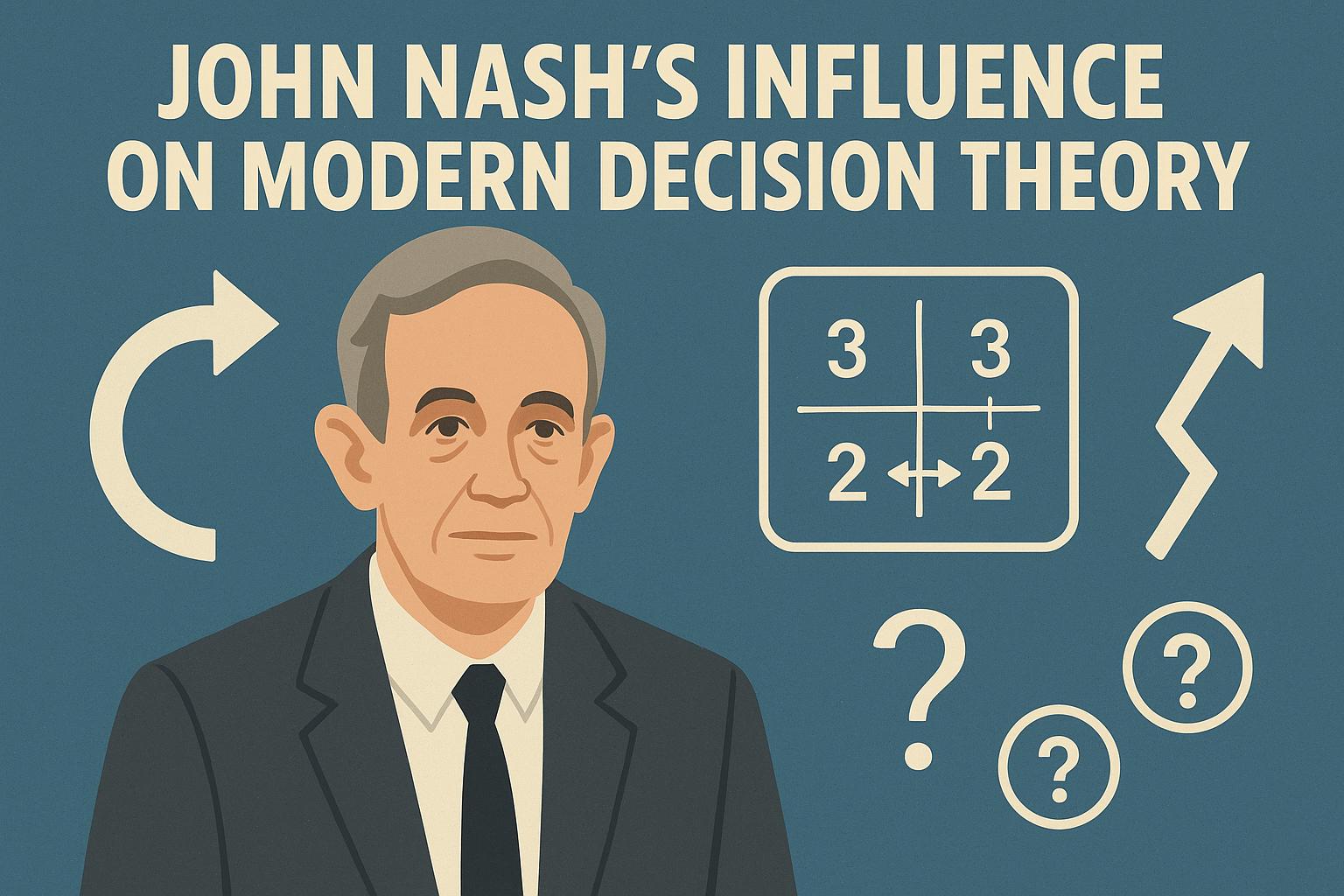Introduction to John Nash
John Nash, a celebrated American mathematician, has left an indelible mark on modern decision theory. His groundbreaking work in mathematics and economics, particularly his development of the Nash Equilibrium, has significantly influenced strategies used in economics, evolutionary biology, and even in the realm of international relations.
The Nash Equilibrium
The concept of the Nash Equilibrium is one of the cornerstones of Nash’s contributions. This concept states that in a game with multiple players, a Nash Equilibrium is reached when no player has anything to gain by changing only their own strategy, given that other players’ strategies remain unchanged. It is a crucial part of game theory because it offers a predictable outcome in strategic games where individual decision-makers interact.
Application in Economics
In economics, the Nash Equilibrium helps in understanding competitive situations where outcomes are determined not just by the individual actions but also by the strategies of others. This is evident in oligopolies where companies must consider the potential reactions of competitors when making pricing decisions. Within this framework, firms engage in pricing strategies, product positioning, and market entry or exit, all while considering potential counter-moves from rivals. This reliance on Nash’s concepts aids economists and policymakers to arrive at equilibrium points that maintain market stability.
Moreover, in auctions, bidders employ strategies that are deeply influenced by considerations of Nash Equilibria. Each participating bidder recognizes that their optimal bidding strategy depends not just on their valuations but also on the strategies adopted by other bidders. This ensures that no bidder benefits by unilaterally altering their strategy if the others keep theirs unchanged.
Impacts on Modern Game Theory
Nash’s work facilitated the expansion of game theory beyond zero-sum games to include a wide range of strategic interactions. His research provided foundational tools for analyzing negotiations and auctions, wherein each participant has strategies that can influence overall outcomes. Thus, decision-makers are equipped to predict and influence competitors’ actions more effectively.
The versatility of Nash Equilibrium is highlighted in cooperative games, where parties can form coalitions and strategize collectively. In such scenarios, the equilibrium concept helps define how groups can optimize shared outcomes without necessitating unilateral gains by one participant at the expense of others.
Further, game theory’s utility extends to political science, where Nash’s principles help model voting behavior and electoral strategies. Political parties are seen as players in a larger game, where their strategic choices greatly depend on the anticipated reactions of opponents and the electorate.
Broader Implications and Legacy
Beyond economics, Nash’s theories have pioneered advancements in various scientific fields. In evolutionary biology, Nash Equilibria facilitate predictions about the behavior of species in stable states. These insights clarify how organisms adopt strategies that sustain survival and reproduction, thereby achieving a stable equilibrium that balances interactions with other species and environmental challenges.
Similarly, in international relations, countries use Nash’s theories to strategize diplomatic or military actions, ensuring optimal decision-making in complex geopolitical landscapes. For instance, during peace negotiations or trade deal formulations, nations act as players in a diplomatic game, each adopting strategies to best achieve national objectives while anticipating the counter-strategies of others.
John Nash’s influence on modern decision theory is monumental, impacting a diverse range of disciplines. His theories continue to enlighten scholars and strategists, offering a robust framework for understanding the dynamics of strategic interactions. His equilibrium models do not only shape academic models but also influence real-world decision-making processes across global institutions.
In conclusion, the importance of the Nash Equilibrium cannot be overstated. It offers a lens through which the complexities of interactive decision-making are distilled into coherent and predictable outcomes. Nash’s mathematical ingenuity and theoretical advancements continue to elevate the strategic understanding across economics, biology, political science, and international relations. His legacy is a testament to the profound impact that abstract theoretical constructs can have on the tangible, real-world challenges faced by humanity.
This article was last updated on: November 19, 2025

